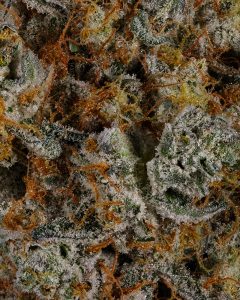In the same way aromatherapy tends works, inhaling the scent of certain terpenes has been associated with a boost in emotional well-being. The sweet, floral scent of the terpene linalool, for example, found in lavender and certain strains, has a calming, sedative effect. Limonene, a terpene found in citrus fruits and peppermint, has a mood-elevating effect, while pinene, found in sage and conifers has been shown to aid in alertness.
New studies show that terpenes have physical health benefits as well. A study published in the Journal of Toxicological Research showed that the Japanese practice of forest bathing, or shinrin-yoku, in a terpene-rich environment has potential anti-inflammatory and neuroprotective affects on human health.
Breaking Down the Science
Recently it’s been identified that the terpenes also act directly on brain cells to modulate their activity. The terpene beta-caryophyllene found in basil, oregano, black pepper, and cannabis has been shown to have anti-inflammatory, antioxidant, and pain-relieving benefits. A study by the Chongqing Medical University in China showed exciting results in using this terpene to treat Alzheimer’s disease. The neurotherapeutic potential extends to other terpenes as well. In some lab models, high doses of linalool showed anti-seizure and anti-epileptic effects.
Cannabis Terpenes: The Entourage Effect
It’s believed that the terpenes present in various strains of cannabis boost the effect of cannabinoids like THC and CBD. Known as the entourage effect. The idea is that multiple cannabinoids combined with multiple terpenes lead to better therapeutic benefits than the cannabinoids alone. More research is being done to prove this theory. But cannabis with a higher terpene amount most likely boosts the effects as well as the flavor and benefits. 
Leave a Reply